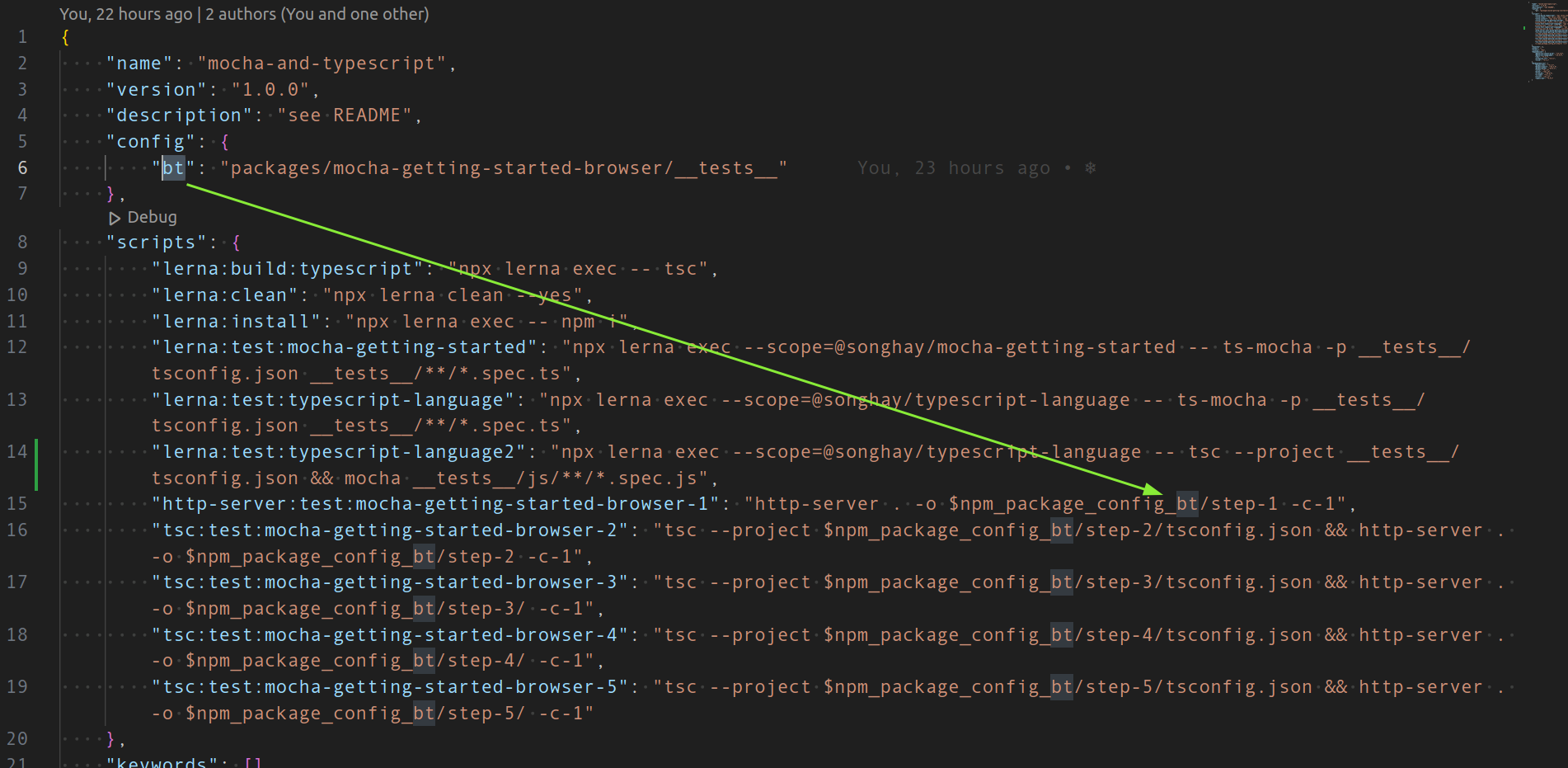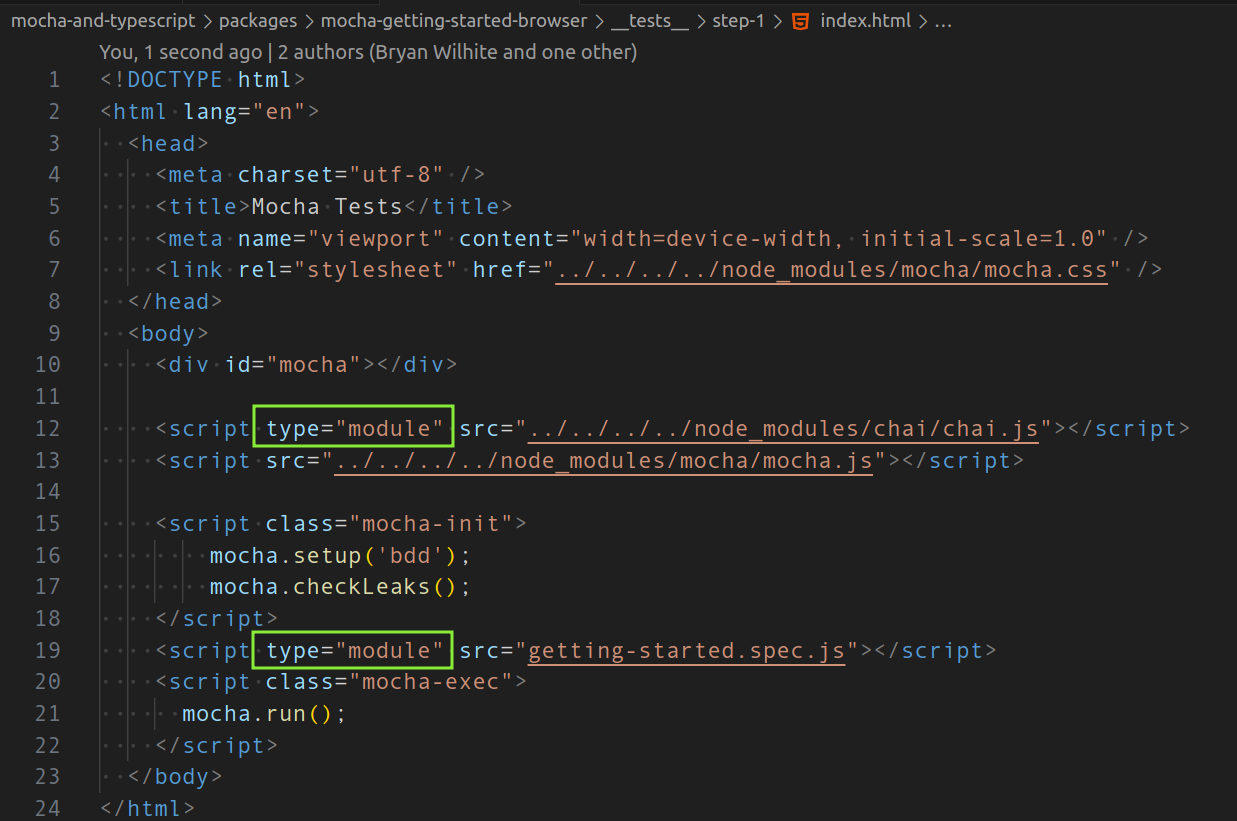studio status report: 2024-11
month 11 of 2024 was about updating Typescript fundamentals with Lerna
The Obsidian graph for month 11 does not show any sign of the Typescript and Lerna work of the month:

Lerna notes are spread out among three days:

Typescript notes cover five other days:

The topics of Lerna and Typescript make eight days of work for the month but selected notes below should show more such work under additional topics:
[[Songhay Publications|Publications]]: WASM Audio Decoders #to-do
WASM Audio Decoders is a collection of Web Assembly audio decoder libraries that are highly optimized for browser use. Each module supports synchronous decoding on the main thread as well as asynchronous (threaded) decoding through a built in Web Worker implementation.
Web Assembly is a binary instruction format for a stack-based virtual machine that allows for near native code execution speed inside of a web browser. In practice, these decoders are just as fast, and in some cases faster, than the browser implementation.
[[Songhay Web Components]] npm drama with [[Lit]]
After the usual npm-check -u, we have the usual miserable security vulnerability message:
17 vulnerabilities (1 low, 3 moderate, 11 high, 2 critical)
So I take the bait as usual and run:
$ npm audit fix
added 10 packages, removed 5 packages, changed 35 packages, and audited 1146 packages in 2m
125 packages are looking for funding
run `npm fund` for details
# npm audit report
@koa/cors <5.0.0
Severity: high
Overly permissive origin policy - https://github.com/advisories/GHSA-qxrj-hx23-xp82
fix available via `npm audit fix --force`
Will install es-dev-server@1.23.1, which is a breaking change
node_modules/@koa/cors
es-dev-server >=1.24.1
Depends on vulnerable versions of @koa/cors
Depends on vulnerable versions of browserslist-useragent
Depends on vulnerable versions of useragent
node_modules/es-dev-server
useragent *
Severity: moderate
useragent Regular Expression Denial of Service vulnerability - https://github.com/advisories/GHSA-mgfv-m47x-4wqp
fix available via `npm audit fix --force`
Will install es-dev-server@1.23.1, which is a breaking change
node_modules/useragent
browserslist-useragent <=3.1.4
Depends on vulnerable versions of useragent
node_modules/browserslist-useragent
4 vulnerabilities (2 moderate, 2 high)
To address issues that do not require attention, run:
npm audit fix
To address all issues (including breaking changes), run:
npm audit fix --force
I am supposed to be satisfied with the drop from 11 to 2 high vulnerabilities 😐
[[Songhay System Studio]]: “Why the deep learning boom caught almost everyone by surprise”
Neural networks had delivered some impressive results in the late 1980s and early 1990s. But then progress stalled. By 2008, many researchers had moved on to mathematically elegant approaches such as support vector machines.
I didn’t know it at the time, but a team at Princeton—in the same computer science building where I was attending lectures—was working on a project that would upend the conventional wisdom and demonstrate the power of neural networks. That team, ==led by Prof. Fei-Fei Li==, wasn’t working on a better version of neural networks. They were hardly thinking about neural networks at all.
Rather, they were creating a new image dataset that would be far larger than any that had come before: 14 million images, each labeled with one of nearly 22,000 categories.
—“Why the deep learning boom caught almost everyone by surprise”
Also, see “How a stubborn computer scientist accidentally launched the deep learning boom ” 📰
[[Songhay System Studio]]: “Bad Software Keeps Cyber Security Companies in Business”
The top two entries, XSS (Cross-Site Scripting) (CWE-79) and SQL injection (CWE-89), are fundamental to web application security and are always covered as part of basic development best practices. Both are common attack vectors and are often included in secure development guidelines like OWASP’s top security risks.
[[Songhay Web Components]]: [[Lit]] drama, continued
Continuing on from [[2024-11-02#Songhay Web Components npm drama|eight days ago]], we have property and customElement missing from [[Lit]]:


According to the latest upgrade guide:
Lit 3.0 built-in decorators are no longer exported by
lit-element, and should instead be imported fromlit/decorators.js.
This appears to be working at design time:


[[Songhay Web Components]]: chai drama 😐
I do not understand why the past version of me wrote a [[Typescript]] file with a variable called chai without any corresponding import statement:

My [[Joplin]] notes make no relevant mention of chai or lerna 😐
[[Songhay Web Components]]: the ERR_REQUIRE_ESM drama is really about my *.ts files being interpreted as CommonJS files 😐
[[2024-11-10#Songhay Web Components ERR_REQUIRE_ESM drama with Chai and TS-Mocha 😐|Two days ago]], I was non-thinking that [[Chai]] was retro, holding back my [[Typescript]] progress when it was the other way around. The [[Chai]] guy himself (the second most active contributor), Keith Cirkel, explains:
To talk about the motivation for this change, especially from the lens of the ecosystem of available build tools: there is a complexity trade off for libraries like Chai to support each of these build tools, and it becomes somewhat of an N*M problem. Standards allow us to target a single syntax to reach the broadest support, and will be an inevitable shift in the JS ecosystem, it is just a matter of "when". Version 5 is chai's "when". Certainly if we are the first to support ESM it would cause undue friction, but if we were last it would also cause undue friction. Packages like
@esm-bundle/chaialready exist which demonstrate the friction is there today. There is no time we could have made this change that would satisfy all users. The Chai team is very confident we've made the right decision so support ESM only, and Chai >5 will continue to support only ESM (or whatever module system the EcmaScript standardises) indefinitely.
Before I understood what was going on, I drove myself to “JavaScript unit testing frameworks in 2024: A comparison” (and found interest in [[StoryBook]] (https://storybook.js.org/) #to-do and [[Puppeteer]]—and found out just how young Microsoft’s [[Playwright]] is). But, eventually, I started paying attention to my root tsconfig.json file:

My moduleResolution setting [📖 docs ] is deprecated 😐
'node10'(previously called'node') for Node.js versions older than v10, which only support CommonJSrequire. You probably won’t need to usenode10in modern code.
The docs strongly suggest to me that I should use bundler:
'bundler'for use with bundlers. Likenode16andnodenext, this mode supports package.json"imports"and"exports", but unlike the Node.js resolution modes,bundlernever requires file extensions on relative paths in imports.
With "moduleResolution": "Bundler",, [[TS-Mocha]] fails with:
Exception during run: error TS5095: Option 'bundler' can only be used when 'module' is set to 'preserve' or to 'es2015' or later.
This error continues to show in spite of the following tsconfig.json settings:

But I must remember that [[TS-Mocha]] depends on [[ts-node]] which must be more [[Node.js]] flavored than “bundler” flavored. Let’s try "moduleResolution": "node16",:
'node16'or'nodenext'for modern versions of Node.js. Node.js v12 and later supports both ECMAScript imports and CommonJSrequire, which resolve using different algorithms. ThesemoduleResolutionvalues, when combined with the correspondingmodulevalues, picks the right algorithm for each resolution based on whether Node.js will see animportorrequirein the output JavaScript code.
Moving from the “bundler” world into the [[Node.js]] world, error messages show up in the [[Typescript]] source code:

This is the error on line 1:
The current file is a CommonJS module whose imports will produce 'require' calls; however, the referenced file is an ECMAScript module and cannot be imported with 'require'. Consider writing a dynamic 'import("chai")' call instead.
To convert this file to an ECMAScript module, change its file extension to '.mts', or add the field `"type": "module"` to '/home/rasx/sourceRoot/songhay-web-components/packages/input-autocomplete/package.json'.ts(1479)
[!important] This error is telling me that my source code is considered “a CommonJS module” 😐👴
The official docs recognizes the .mts file extension:
When the input file extension is
.mtsor.cts, TypeScript knows to treat that file as an ES module or CJS module, respectively, because Node.js will treat the output.mjsfile as an ES module or the output.cjsfile as a CJS module. When the input file extension is.ts, TypeScript has to consult the nearestpackage.jsonfile to determine the module format, because this is what Node.js will do when it encounters the output.jsfile.
[!important] By changing the file extension from
.tsto.mts, the second error message on line 3 goes away:
Relative import paths need explicit file extensions in ECMAScript imports when '--moduleResolution' is 'node16' or 'nodenext'. Did you mean './autocomplete-suggestions.js'?ts(2835)
[[Songhay Web Components]]: the horror 🤡 of the situation is centered upon [[TS-Mocha]] being dead 💀
My waste of time [[2024-11-12#Songhay Web Components the ERR_REQUIRE_ESM drama is really about my *.ts files being interpreted as CommonJS files 😐|yesterday]] was punctuated with an empty checklist, looking forward to another potentially time-wasting effort. In order to avoid wasting time on that checklist, I recommend wasting more time by looking at [[Mocha]] again in the context of, say, “Mocha for TypeScript Testing: How to Get Started.” My accusation is this:
[!warning] [[TS-Mocha]] is abandoned: left for dead 💀
[[TS-Mocha]] is not growing with [[Typescript]]. The error messages from yesterday strongly suggest this (to me). Sadly, I need to go back to my “mocha and Typescript” sample and try it again without [[TS-Mocha]] #to-do
[[Lerna]]: using lerna exec with --scope
My “mocha and Typescript” sample [🔗 GitHub ] shows how to use lerna exec without --scope:
"ts-mocha:test:test:mocha-getting-started": "npx ts-mocha -p packages/mocha-getting-started/__tests__/tsconfig.json packages/mocha-getting-started/__tests__/**/*.spec.ts",
Here is the same command using --scope:
"lerna:test:mocha-getting-started": "npx lerna exec --scope=@songhay/mocha-getting-started -- ts-mocha -p __tests__/tsconfig.json __tests__/**/*.spec.ts",
This approach does not make the command shorter but I find it more understandable—and more ‘convertible’ to executing the same command without [[Lerna]].
http-server can start up in a sub-directory…
…the reason why this feature is useful at the moment in this Studio is because it allows the loading of dist assets in the node_modules directory, eliminating the need for bundling with, say, [[webpack]]. Again, in my “mocha and Typescript” sample [🔗 GitHub ], we can see an HTML page expecting http-server [🔗 GitHub ] to start up in a sub-directory:
<!DOCTYPE html>
<html lang="en">
<head>
<meta charset="utf-8" />
<title>Mocha Tests</title>
<meta name="viewport" content="width=device-width, initial-scale=1.0" />
<link rel="stylesheet" href="../../../../node_modules/mocha/mocha.css" />
</head>
<body>
<div id="mocha"></div>
<script src="../../../../node_modules/chai/chai.js"></script>
<script src="../../../../node_modules/mocha/mocha.js"></script>
<script class="mocha-init">
mocha.setup('bdd');
mocha.checkLeaks();
</script>
<script src="getting-started.spec.js"></script>
<script class="mocha-exec">
mocha.run();
</script>
</body>
</html>
The corresponding [[node package manager|npm]] script is:
http-server . -o $npm_package_config_bt/step-1 -c-1
The --help text for the -o option used above reminds us that -o supports a [path] option:
-o [path] Open browser window after starting the server.
Optionally provide a URL path to open the browser window to.
[[Lerna]]: a couple of new things learned
Here are some small signs of progress:
package.json has a config property for sharing state
In short, config [📖 docs ] is a state bag 👜 My “mocha and Typescript” sample [🔗 GitHub ] shows what is going on:

The conventional prefix for accessing this state bag 👜 is $npm_package_config_*.
[[Synology]]: yes, it appears to be possible to upgrade NAS memory 🐏⬆ 👀 #to-do
This video explains that:
- the DS220 has a maximum of 6 GB of RAM (does the DS220+ change that? No.)
- the memory used is Crucial RAM 8GB DDR4 2666 MHz CL19 Memory for Mac CT8G4S266M
[[Lerna]]: next move is to use @tsconfig/strictest
Today I have been made aware of @tsconfig/strictest [🔗 npm ] which a part of Centralized Recommendations for TSConfig bases [📖 docs ].
[[Songhay Publications]]: the script [type="module"] attribute
My “mocha and Typescript” sample [🔗 GitHub ] work led me to this error message while failing to load [[Mocha]] in the browser ([[Firefox]]):
SyntaxError: import declarations may only appear at top level of a module
The JavaScript exception "import declarations may only appear at top level of a module" occurs when an import declaration is not at the top level of a module. This might be because the import declaration is nested in other constructs (functions, blocks, etc.), or more often because the current file is not treated as a module.
—“SyntaxError: import declarations may only appear at top level of a module”
Adding type="module" to the script element causes the file loaded with the src attribute to be treated as a module [📖 docs ].
We see the type attribute [📖 docs ] of script set to module twice:

Notice how there is no type attribute declared on line 13. This is because mocha.js has no import or export statements which effectively makes it not a module. It is an IIFE [📖 docs ].
It is important (to me) to mention that using the import statement in JavaScript without any export statements still means that the file containing this import statement is a module:
In order to use the
importdeclaration in a source file, the file must be interpreted by the runtime as a module. In HTML, this is done by addingtype="module"to the<script>tag. Modules are automatically interpreted in strict mode.—“import”
[[Songhay Publications]]: the script[type="importmap"] attribute
My “mocha and Typescript” sample [🔗 GitHub ] shows that, when writing JavaScript by hand, making a file that will be loaded in the browser, we may resort to this import syntax:
import { assert } from '../../../../node_modules/chai/chai.js';
With respect to the browser, the relative path to the chai module is explicitly specified. All of this effort is taken to avoid this catastrophic error message:
TypeError: The specifier “chai” was a bare specifier, but was not remapped to anything. Relative module specifiers must start with “./”, “../” or “/”.
Our chai module is imported with a “bare specifier” when the syntax is like this:
import { assert } from 'chai';
This is the very syntax we are used to when writing [[Typescript]]. In fact, the [[Typescript]] will not compile when we try to use import with the “relative module specifiers” shown above.
Now our TypeError error message has the word “remapped” in it. This suggests that:
[!import] An
importstatement with a bare specifier needs a mapping from this specifier to an absolute or relative location accessible by the browser.
Such mapping is declared in JSON format in a script element with the type="importmap" attribute [📖 docs ].
An import map is a JSON object that allows developers to control how the browser resolves module specifiers when importing JavaScript modules. It provides a mapping between the text used as the module specifier in an
importstatement orimport()operator, and the corresponding value that will replace the text when resolving the specifier. The JSON object must conform to the Import map JSON representation format.
Our “mocha and Typescript” sample [🔗 GitHub ] has an HTML declaration showing how type="importmap" works:
<!DOCTYPE html>
<html lang="en">
<head>
<meta charset="utf-8" />
<title>Mocha Tests</title>
<meta name="viewport" content="width=device-width, initial-scale=1.0" />
<link rel="stylesheet" href="../../../../node_modules/mocha/mocha.css" />
<script type="importmap">
{
"imports": {
"chai": "../../../../node_modules/chai/chai.js"
}
}
</script>
</head>
<body>
<div id="mocha"></div>
<script type="module" src="../../../../node_modules/chai/chai.js"></script>
<script src="../../../../node_modules/mocha/mocha.js"></script>
<script class="mocha-init">
mocha.setup('bdd');
mocha.checkLeaks();
</script>
<script type="module" src="./js/getting-started.spec.js"></script>
<script class="mocha-exec">
mocha.run();
</script>
</body>
</html>
open pull requests on GitHub 🐙🐈
- https://github.com/BryanWilhite/Songhay.HelloWorlds.Activities/pull/14
- https://github.com/BryanWilhite/dotnet-core/pull/67
sketching out development projects
The current, unfinished public projects on GitHub:
-
replacing the Angular app in
http://kintespace.com/player.htmlwith a Bolero app 🚜🔥 depends on:- completing issue #54: move
Songhay.Publications.DataAccessout of the kinté space repo 🚜 - generating Publication indices from SQLite for
Songhay.Publications.KinteSpace - generating a new repo with proposed name,
Songhay.Modules.Bolero.Index✨🚧 and add a GitHub Project
- completing issue #54: move
The proposed project items:
- switch Studio from Material Design to Bulma 💄 ➡️ 💄✨

